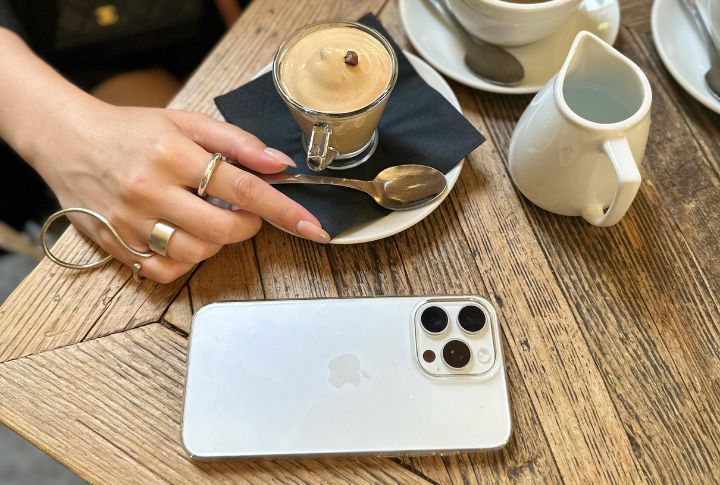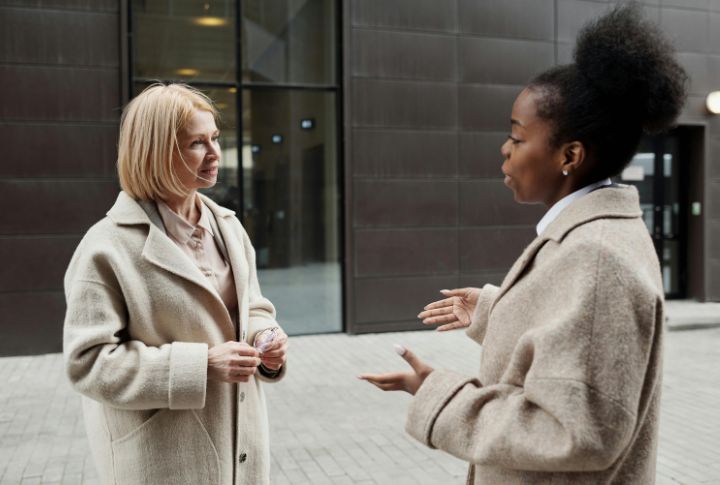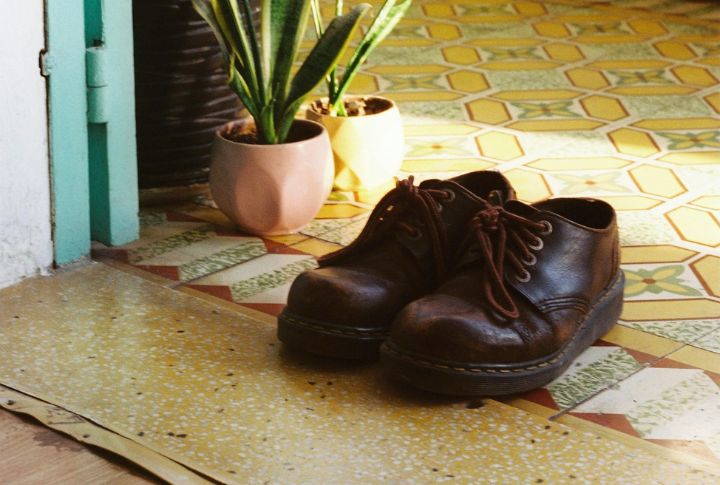
You can feel them more than you can describe them—those silent expectations guiding how you act when no one’s watching. They turn chaos into order, like an invisible thread connecting strangers who’ll never speak. Every interaction depends on that quiet understanding, holding life together in ways we rarely notice. Once you start recognizing it, society looks completely different. Here are 20 unspoken rules that keep everything working.
Wait Your Turn In Lines

You’ve seen it: that one person who thinks lines are just a “suggestion.” It never ends well. No matter where you are, waiting for your turn keeps life civilized. It’s basically humanity’s first teamwork exercise. This has been followed in almost every other country in the world.
Let People Exit First

Those people who rush into trains before anyone’s out is like trying to pour coffee into a full cup. Letting others exit first just makes everything smoother. In places like Japan, it’s a daily art form. You don’t need to bow, just wait two seconds.
Keep Your Audio To Yourself

Not everyone wants to hear your Monday playlist or motivational YouTube guru. That’s why headphones were invented—as a public service disguised as tech. Playing audio out loud in a cafe or bus is like announcing, “I’m the main character.”
Respect Personal Space

If you can feel someone’s breath on your neck in line, you’re standing too close. People have an invisible comfort zone, and giving them space is simply about respect. A small step back can make public moments far more comfortable for those around you.
Return What You Borrow

When you borrow something, handle it as if it’s made of glass and your reputation depends on it, because it does. The way you return items speaks volumes about your character. Tips: add a quick thank-you note to show genuine appreciation and thoughtfulness.
Step Aside For Calls

No one’s hoping for front-row seats to your phone conversation. When your phone rings, step aside or move to a quieter spot. That simple courtesy helps keep shared spaces pleasant and spares others from hearing details they never wanted to know.
Put Your Phone Away During A Conversation

Nothing breaks the connection faster than a quick look at your notifications mid-conversation. You should always keep the phone facedown and your focus on the conversation. The gesture reflects respect and the kind of mindfulness that makes every interaction feel sincere.
Give A Heads-Up If Late

Running late happens. Traffic, misplaced keys, existential crises—it’s fine. But silence is the rude part. Sending a quick message takes ten seconds and saves twenty minutes of irritation. It’s the easiest way to say, “I respect your time,” without needing to over-apologize later.
Don’t Comment On Appearance

Here’s a wild thought: not every opinion about someone’s looks needs to be shared. “You look tired” or “Have you gained weight?” are social grenades. Compliments are fine, but keep them kind and genuine. If it’s not helpful or respectful, it’s better left unsaid.
Say Thanks Clearly

“Thanks” is the cheapest word with the biggest return. Say it out loud, say it often, and actually mean it. Whether it’s a text or a quick smile, a little gratitude keeps daily life from feeling transactional. Think of it as emotional WD-40, as it keeps everything running smoothly.
Cover Coughs And Sneezes

The methods may have shifted, but the meaning remains clear: keep germs to yourself. An elbow raised at the right moment prevents droplets from traveling and helps maintain cleaner surroundings for those nearby. Courtesy and health often meet in small actions.
Offer The Last Bite

There’s always that one lonely fry or final slice staring everyone down. Ask before reaching, and you’ll dodge side-eye and score social points. The offer alone says, “We’re in this together,” and proves that snack etiquette can also be surprisingly powerful.
Ask Before Touching

Not every cute kid or fluffy dog wants to meet you, and honestly, who can blame them? Asking first takes two seconds and saves everyone the awkward recoil, or worse, a growl. Personal space applies to small humans and furry ones, too.
Follow House Rules

Every home runs on its own rhythm. Maybe it’s shoes at the door or a no-food-in-the-bedroom rule. You don’t have to share those habits to respect them. Following house rules shows you value the person hosting you, and that courtesy always gets remembered.
Respect Privacy

Some conversations are meant to stay private. When personal details spread beyond those involved, tension can follow. The best approach is simple: keep sensitive talk to yourself. That habit protects trust and helps others feel at ease opening up to you.
Don’t Interrupt

Most people enjoy a good talker, yet great listeners stand out even more. Those people don’t interrupt when others are talking, as it shows impatience. So, allow the other person to finish. You may even find their point was sharper or wiser than what you planned to add.
Clean Up After Yourself

When you’re done using a spot, you’re not actually done until you reset the space. No one should have to pull a haunting act just to get a plate in the sink, right? A quick wipe of the counter and a trash toss are all it takes.
Avoid Divisive Topics

Bringing up politics or religion at dinner is the social equivalent of throwing a match into dry grass. Sure, it gets interesting, but mostly in a bad way. Stick to lighter conversations unless you’re absolutely sure everyone’s on board. Sometimes peace and quiet beat being “technically right.”
Be Civil About Mistakes

Picture two scenarios: someone bumps your coffee and storms off angrily, versus offering a quick “excuse me” with understanding. These small moments showcase how responding with civility rather than frustration can transform tense situations into opportunities for grace. Giving others a pass fosters a kinder society through patient interactions.
Match The Mood Or Setting

There’s a clear winner between those two extremes. Understated attire can signal a missed read of the occasion, while dressing more formally conveys respect and intention—a quiet gesture that honors both the host and the event. If you’re unsure, the easiest choice is to err on the side of formality.

